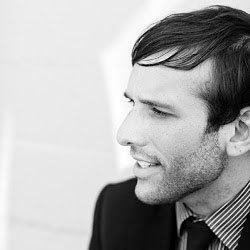This “Go Forth” installation is about KIR: Keeping it Real.
Alexis Madrigal is a Senior Editor at the Atlantic and a writer and the kind of guy who has an anthropological perspective on the technology he writes about yet will sit at a bar with you and say, “Nope, I am a just a guy who is interested in stuff.”
Ken Baumann is a writer, indie publisher, and actor who recently starred on The Secret Life of the American Teenager. He works tirelessly as an advocate for Crohn’s disease; you may have seen him on Dr. Drew and Good Morning America recently.
They are two completely different dudes who I thought would give us interesting perspectives on Keeping it Real in publishing. Love, Nicolle

NICOLLE ELIZABETH: Hi, Alexis. You are a Senior Editor at the Atlantic and also a super cool dude. I thought it would be good to ask you to talk to our readers about how you started in writing and editing.
ALEXIS MADRIGAL: Well, I started as a fiction writer in college. As I recall, my first published work was about a guy who was a salesmen who peed on toothbrushes. But of course it was also about SO MUCH MORE. I tried to write a novel back then, too. Pretty sure it was bad. My thesis advisor was more than sure. So I ended up writing an even worse novella. When I got out of school, I managed a political campaign, worked for a hedge fund, wrote some research reports about videogames, did some weird art projects, got interested in energy, and finally landed a little gig writing about green technology for GigaOm, a big Silicon Valley blog. That led, almost right away, to some blogging for Wired at $12 a post. That’s really where I latched on. Then I sold a book, did Longshot Magazine, met lots of awesome people, and eventually moved to the Atlantic in 2010.
NE: Your focus has been technology. Can you speak to how when one has a specialty they can write about it?
AM: 1. I don’t really think of myself as a “technology writer,” I’m just fascinated by technology. If I have advice, it’s that you should use your specialty like frigging X-RAY glasses to see past the superficial stories that other people do about the world. It’s not just about knowing stuff, it’s about using what you know to show people something about the world that they didn’t know before. Some of the best stories for people starting out are to use some bit of...
You have reached your article limit
Sign up for a digital subscription and continue reading all new issues, plus our entire archives, for just $1.50/month.
Already a subscriber? Sign in




